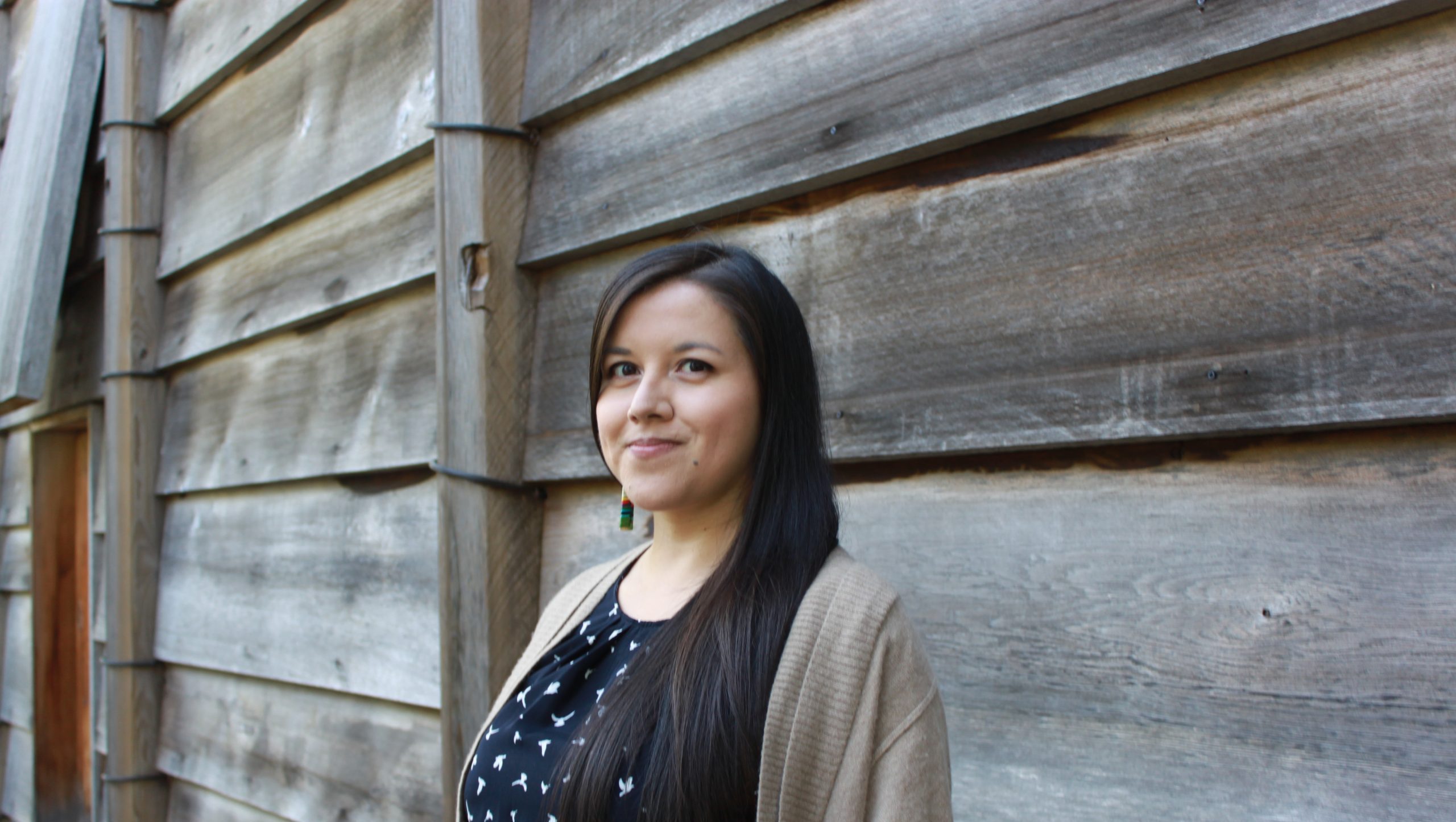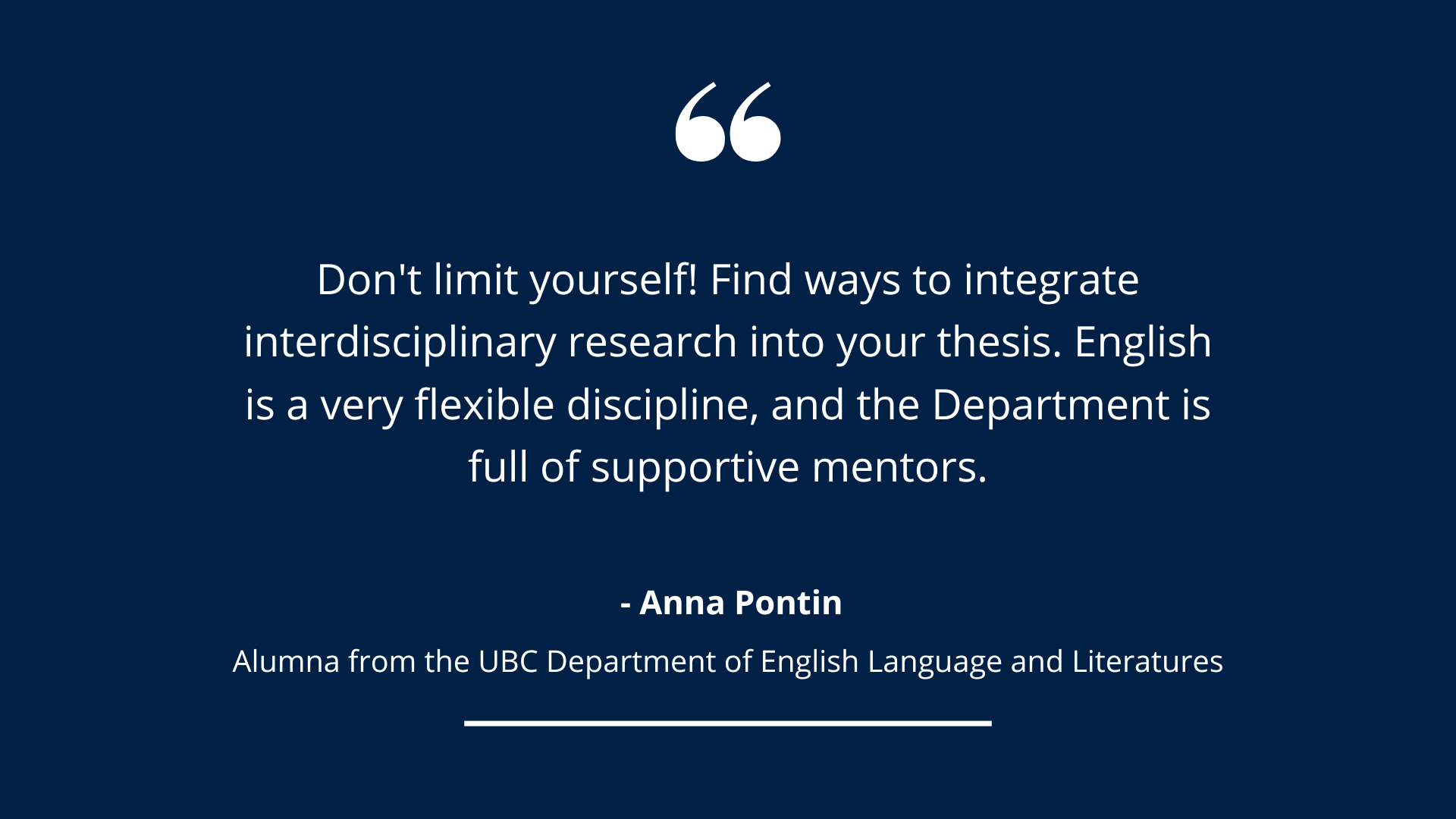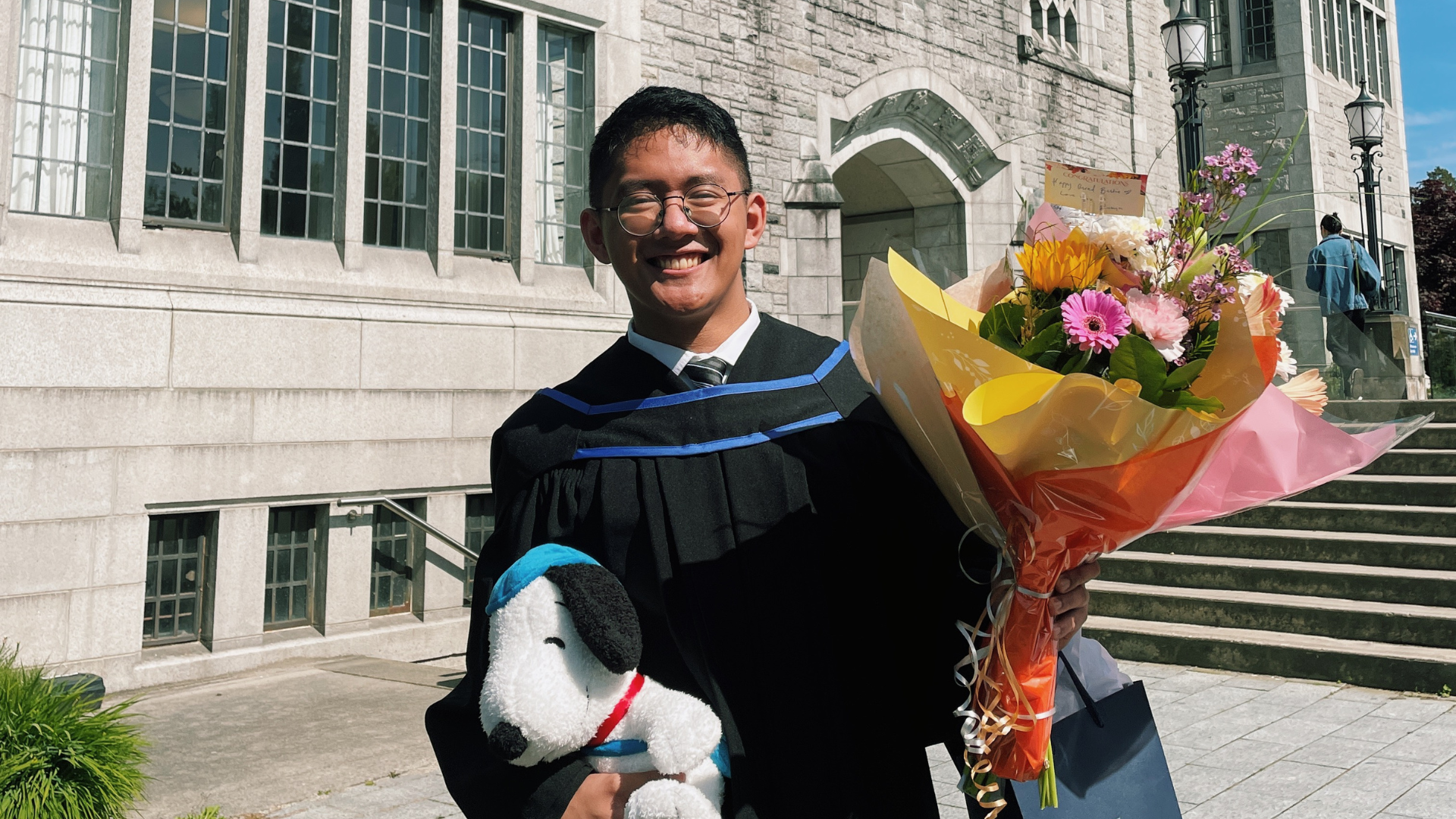

Image via Alexa Manuel.
Dr. Alexa Manuel (Syilx and St’at’imc Nations) completed her doctoral studies in March 2024. Her dissertation, titled “Stories of Lands, Bodies and Dreams: A tmixwcentric Literary Theory”, proposes a literary theory based in Syilx knowledges. This September, Manuel joins the Department of English Language & Literatures as a Postdoctoral Fellow, where she is also teaching ENGL_V 231: Introduction to Indigenous Literatures.
Read this Q&A to learn about Manuel’s research, her experience in academia, and her hopes for Indigenous futures in the literary realm.
What is your dissertation about?
My research over the past seven years has uncovered many different forms of storytelling; although my ancestors did not write in books until very recently, we have been creating our own literatures for millennia. We tell the stories of our ancestry, our relationships, our dreams, not only through oral story but also through our lands and bodies, through our craftsmanship and artistry, and through the clothing that we wear. To honour that, I’ve been thinking of different ways to “read” these literatures through something I’ve been referring to as “storylistening”. For every form of storytelling there is another form of storylistening – what stories am I being told today and by whom? Am I listening as well as I could be?
What are some important knowledge gaps your research attempts to address?
One of the main gaps I attempted to address was the complete lack of literary criticism centering Indigenous literatures from my ancestral territories, which includes all of the Interior Salish region. We don’t have a lot of written literature, but we do have a rather distinct way of thinking that sometimes differs greatly from the epistemologies found in other Indigenous nations. There are plenty of Indigenous people talking about literary theory or criticism at this point in time, but most seem to be from the Eastern North American regions.
What did you think your research was going to be like when you first started your PhD?
To be honest, I had no idea. My Master’s was, at that point, the most difficult thing I had done, and the experience was incredibly humbling. When I started my Masters, I thought I was so smart, but it made me realize just how little I knew. When I started my PhD, I entered the program with caution – I was far more gentle with myself and my learning, and I kept more realistic expectations for myself, but I did feel I was infinitely more prepared this time.
What did your research end up looking like, now that you’re done?
I’m really happy with where my research ended up, especially seeing how far it’s come from its conception. When I applied to UBC, I had proposed research on the theological Christian influences in Syilx literatures, even though I had little interest in the topic. In the end it didn’t seem as important as the other things I wanted to address, but I still gave it space in my dissertation.
My research became a practice in storylistening itself, as I uncovered various ways to understand different types of story as theorized through Syilx concepts. There were times where it felt like my thesis was writing me, as I would sometimes just surrender myself to the process and allow for the ideas to take me where they needed to go. My thesis was done in an autoethnographic format, because I was unable to separate my Indigenous knowledges and my Indigenous self from my research. I didn’t find out about the term “autoethnography” until I was nearly finished writing, it just naturally happened along that format. The theory I proposed simply would not have existed without my Syilx upbringing, as it is heavily informed by Syilx culture and language. In the dissertation, I write a lot about my family, my lands, and the lessons both have taught me. I then weave these lessons into my research.
What were some valuable lessons you learned during your program?
I learned to step away from my perfectionism. I learned that if you ever want to complete your dissertation, you need to accept that it will not be perfect, you just have to get it done. I also learned how to be more selective with my time and energies, mostly because I burned out quite quickly at the beginning because I kept saying yes to everything.
Everything always felt so urgent and important. I kept hearing from others that I should constantly be thinking about my career after university, I should be publishing, I should be building my CV, and so on. But I realized one day that I had a lot of time to do all of that. Getting my doctorate was giving me that time. I didn’t need to be done with everything immediately, especially not at the cost of my mental health. When I allowed myself to focus more intently on my writing, I got it done.
Do you have any advice for students who may have similar experiences as you?
There really aren’t a lot of Indigenous peoples in academia, but there have been enough that we’ve come up with a lot of colloquialisms and catchphrases over the years. One of these phrases that’s always bothered me is this idea of Indigenous academics “walking in two worlds”, which refers to Indigenous people often feeling like they lead two different lives: one in the Indigenous world, and the other in academia. I don’t agree with this phrase or this way of thinking, because it implies that academia is not for us, or that Indigenousness does not belong here. We never hear non-Indigenous people saying the same about working or living on our lands, so why do we say it about ourselves? Be your full self wherever you are.
Speaking more practically, I’ve always struggled with organization and timelines and staying focused. I was diagnosed with ADHD a few years ago which explained a lot, but I’ve come to realize there’s still a lot of stigma around it so I’ve been trying to be more open about it, especially with my students who have been more than understanding. Whenever I’m asked for advice on the matter, my usual response is to get a Project Manager in your life, or learn the ways of project management yourself! My partner of 15 years is trained in Project Management, and he has definitely helped me navigate my life both at home and at school. I still have my struggles, but learning organization skills from someone who is actually organized was very helpful.


